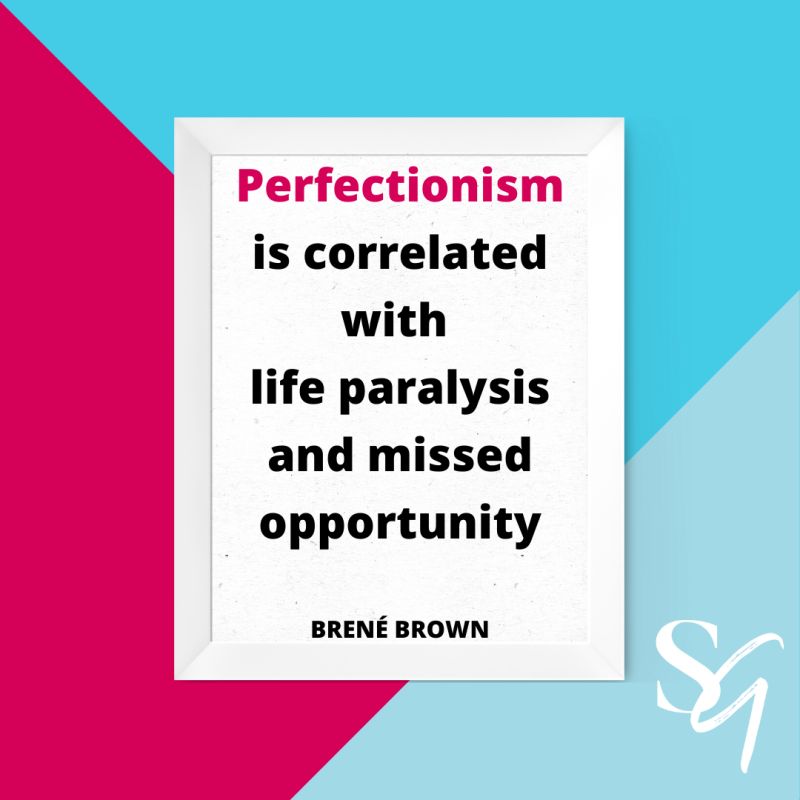33% of women are classified as perfectionists in a study by Medibio. And 21% of men.
Research suggests the desire for women to be ‘perfect’ is deep rooted amongst many of us. It applies not just to work, but to grades at school, appearance, and even motherhood.
We can believe that a determination to always excel will help us succeed in life and bring us joy but it tends to do the opposite.
And that’s because of where it comes from.
Our perfectionism usually comes from a need for aprobation. We fear rejection if we don’t finesse our work.
It’s a self-critical voice that tells us that unless we work harder than others, look better than others, are smarter than others, that we are not good enough.
The truth is that perfection is not correlated with self-esteem for work well done, or a level of confidence that allows us to venture beyond our comfort zone.
Instead, because, according to Brené Brown it comes from shame, it holds us back.
Perfectionists are more likely to stagnate as they set the bar so high and fear failure so much.
If you’re a perfectionist, take an honest look at what you think is driving it.
What are you avoiding doing when you’re finessing your work beyond the point of usefulness?
Does your perfectionsim come from fear? Is it helping or hindering your development?






